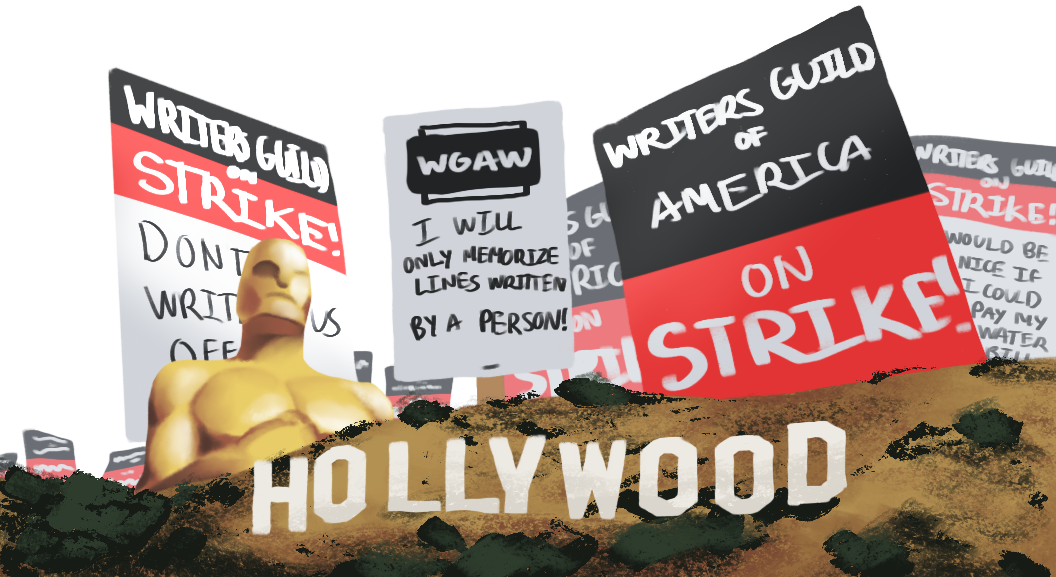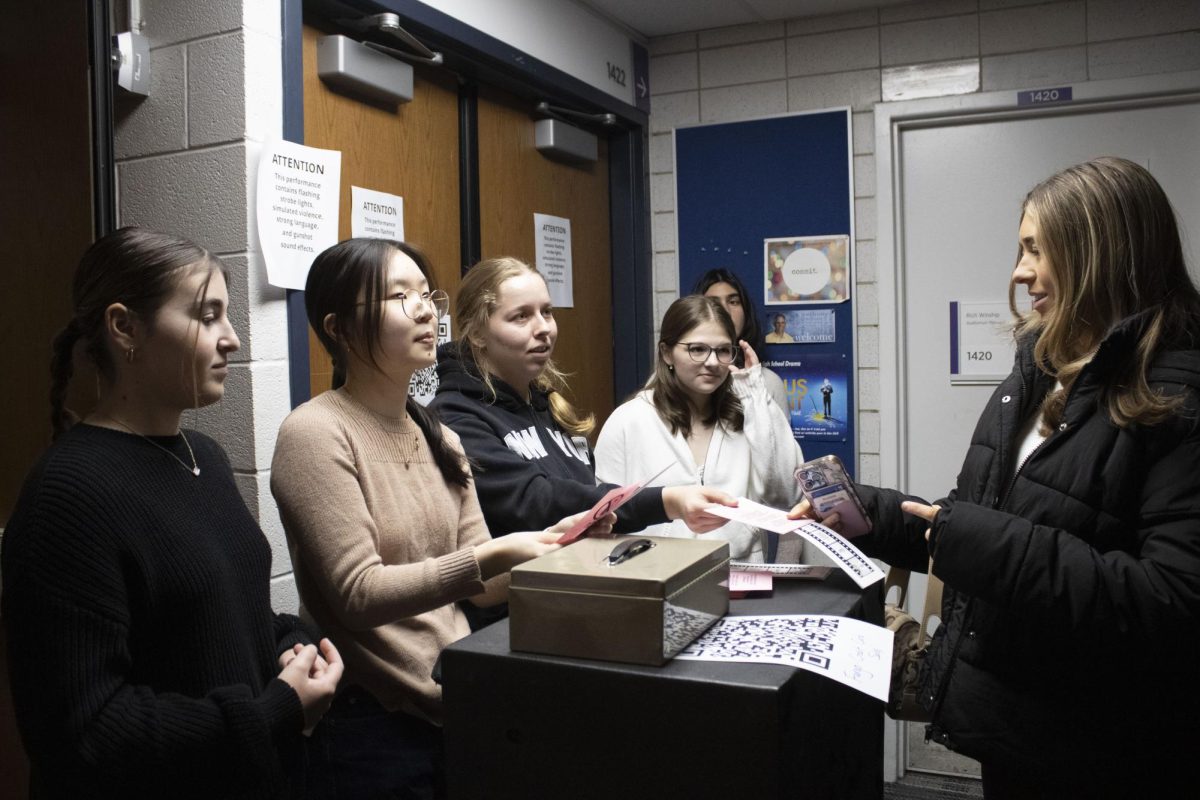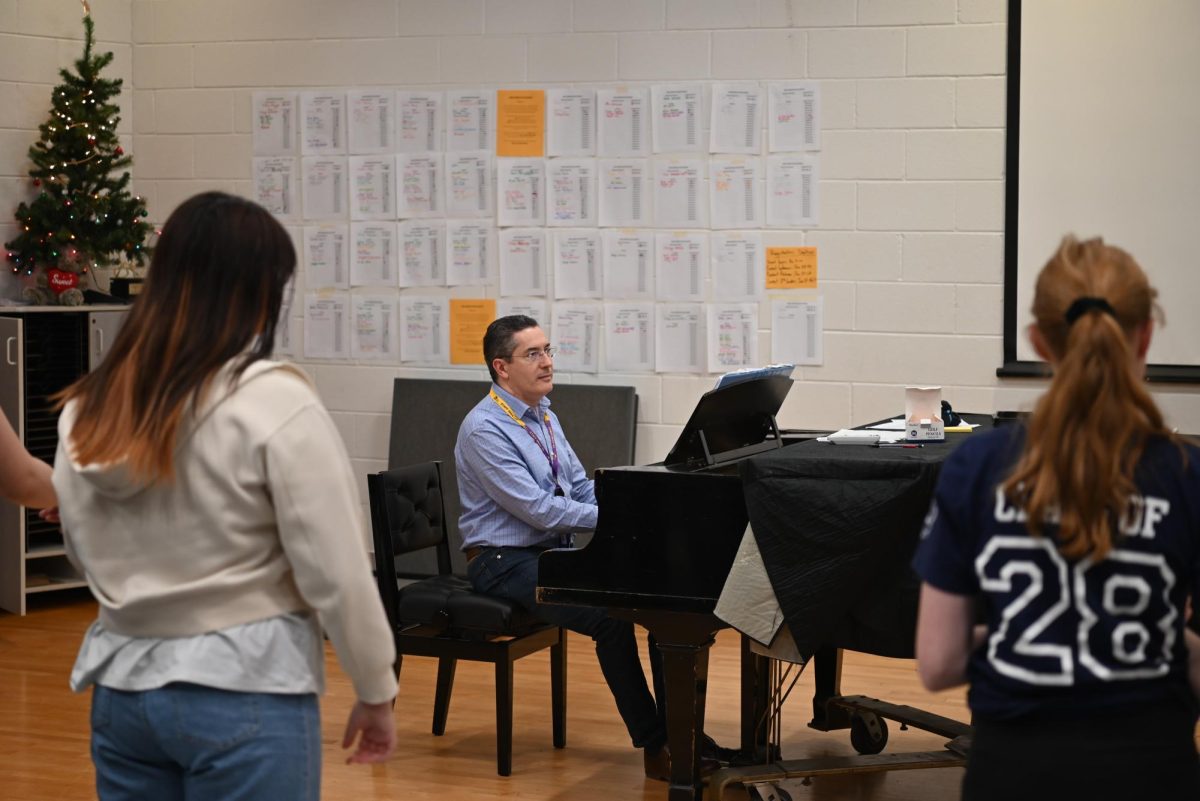As the summer movie surge ends and the fall television season begins, many students find themselves streaming their favorite movies. What may be unbeknownst to them are the fierce struggles taking place at the center of production of these films: Hollywood, Matt Stevens reported for The New York Times.
For the first time in 63 years, Hollywood had shut down due to writer and actor unions, called the Screen Actors Guild – American Federation of Television and Radio Artists (SAG-AFTRA) and Writers’ Guild of America (WGA), respectively, going on strikes, Stevens reported. The WGA union strike has ended while a ratification vote takes place on a new three-year contract with Hollywood studios that won concessions on writers’ payment, terms with streaming shows, and the use of artificial intelligence, leaving Hollywood studios focused on the SAG-AFTRA strike, according to The New York Times.
Actors and writers were going on strike due to pay issues in the industry, John Cowlin, Film Studies teacher, said.
“Both of the strikes are about people who are working just to make a living as actors [and writers],” Cowlin said. “A lot of them are living in apartments and can’t even afford a house because they’re being paid so little.”
So, what does this mean for South students wanting to go into the filmmaking industry? Senior Riley Landt, aspiring director and screenwriter, loved movies as a child. Seeing the current strikes in the moviemaking industry, Landt worries about his future career in the film industry.
“I’ve always wanted to direct and write, but it is a rough time to get in the industry,” Landt said. “Because of [the strikes], it is harder to [study] screenwriting.”
Landt found his passion for directing and writing when he first watched Fight Club as a kid with his father.
“After [the movie] was over, I sat back on my couch for a minute and thought, ‘Wow. I want to do that.’” Landt said.
Similarly to Landt, going into the filmmaking industry became sophomore Asher Preston’s dream after watching movies with his father. Growing up with performers as parents, Preston cultivated a love for performance since he was little.
“Ever since I was a kid, I was interested in singing and performing for other people,” Preston said. “My parents both graduated with voice degrees, and my father was showing me a lot of old movies [as a child]. These [factors], all layered together, developed my interest in movies.”
Preston worries about the payment discrepancies in the film industry.
“It’s [unfair] of movie executives to not share some of their [pay] with the [actors and writers] in the industry,” Preston said.
Cowlin hopes that writers and actors can have their conditions met moving forward.
“I’m always going to side with the writers and the actors and all the creative people [on strike] because the movies that I love were not made by studio heads,” Cowlin said. “They were made because the filmmakers themselves had some level of creative input and they could make [the movies and shows] they wanted to.”







